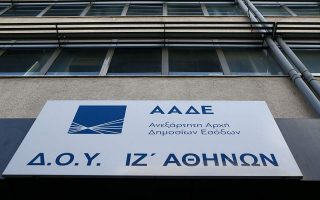Solidarity levy abolition plan
Infamously ‘extraordinary’ tax may be abandoned for all taxpayers as of 2022, official says

The solidarity levy may be suspended for all taxpayers next year, a top Finance Ministry official said on Thursday, conceding that this can only happen if there is ample fiscal space and the economy picks up toward the end of this year. In any case, the decisions in that direction will only be made in the fall, with the submission of the 2022 state budget and after the European institutions have given the nod.
Today the solidarity levy has been suspended for private sector salary workers, freelancers, property owners who are collecting rent and investors who are reaping dividends. Civil servants and pensioners with annual incomes in excess of 12,000 euros are still expected to pay it. This exclusion of public sector workers and pensioners from the favorable measure could create problems regarding whether it is consistent with the provisions of the Constitution, so the government is considering acting before issues are raised by the parties concerned.
Prime Minister Kyriakos Mitsotakis recently all but confirmed the suspension of the solidarity levy for 2022 too, stopping short of clarifying whether that would concern everyone or just private sector workers and the self-employed.
According to a ministry official, the governing party suspended the implementation of its election program due to the health crisis, and will gradually resume the fulfillment of its promises – but without jeopardizing the long-term fiscal discipline that the market places so much significance on.
The same official notes that the interventions will be actualized depending on developments in the economy: The return of the economy to a course of growth with the support of the Next Generation EU resources will bolster public revenues, generating the fiscal margin for financing the measures promised.
The cost for the full abolition of the solidarity levy for both the private and the public sector is estimated at around €1.2 billion euros per annum. The levy was first introduced in 2011 as an extraordinary tax on incomes over €12,000 per year.





